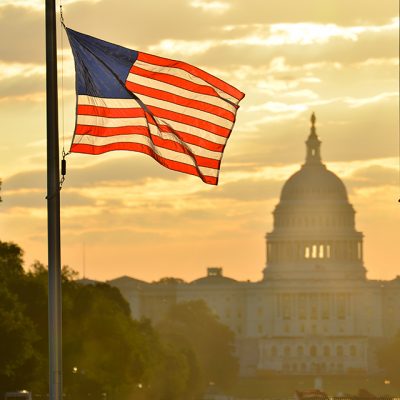With the midterm elections behind us, 2023 kicks off the 118th Congress and marks the second half of President Joe Biden’s first term. As the past several years have taught us, we know we need to expect the unexpected. The core federal issues for our members remain the same: trade and tariffs, recycling, extended producer responsibility (EPR), sustainability, workforce, and supply chain. But the legislative vehicles and exact congressional agenda are to be determined.
As we map out our advocacy plans for the year, this is what we know.
Congress
New members: The composition of the 118th Congress is significantly different than the 117th. Given the large number of freshman members, part of our initial work will be an educational campaign with newly elected officials to introduce them to the Flexible Packaging Association (FPA), our industry, member companies in their districts, and federal legislative priorities.
Committee changes: As many senior members retired or left to pursue other elective offices, there were a lot of vacancies on committees with jurisdiction for FPA issues. Accordingly, there will be significant committee leadership changes. New chairs, and in the House, new party leadership, will impact committee agendas, as all members have particular legislative priorities. They also will add to or change their staff, and that can impact how the committee operates. Also, as new members are added to committee rosters—whether they are freshmen or not—we will conduct updated briefings on committee-specific issues.
Legislation: In a new Congress, all pending legislation from the previous Congress expires. As legislation is reintroduced, it provides an opportunity for FPA to weigh in on any language changes we would like to see.
Administration
Implementation of major legislative packages: Despite the political discord of the Biden administration’s first two years, several significant legislative packages were enacted that include many provisions and programs of interest to FPA members, including the Infrastructure Investment and Jobs Act, the Inflation Reduction that these packages are law, the focus shifts to the Biden administration for implementation. For our programs of interest, we will track and provide input on guidance and proposed programs as this is developed.
Changes in the cabinet/senior staff: The second half of a presidential term usually brings changes to the cabinet and other senior adviser positions. For FPA, we will track and report on changes and engage in support or opposition to replacement nominees.
Use of executive action: As President Biden will continue to face congressional challenges in advancing his administration’s agenda, we anticipate an increase in executive actions.
Trade and tariffs: Trade and tariffs were placed on the back burner when the president first took office, as the pandemic, the economy, and national security issues took priority. There was an uptick in FPA advocacy on this issue this past year when FPA needed to respond to the federal Department of Commerce’s self-initiated aluminum circumvention case. We expect to spend more time on these issues, as the Section 301 tariffs are reviewed and other trade discussions occur.
One other factor that will play a role in all of the items listed above is the start of the 2024 election season. Everything Congress or the Biden administration does will be done against a backdrop of how it could impact the next presidential election.
Stay tuned. It’s going to be a busy year.
